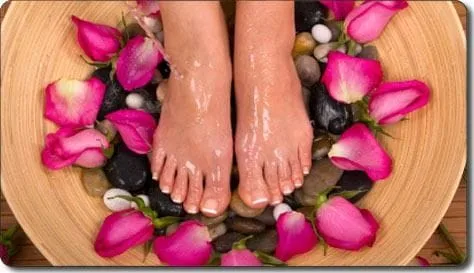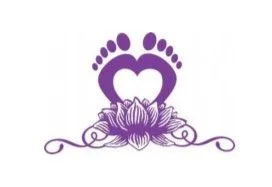Is reflexology painful?
Reflexology is not meant to be painful. Some areas may feel tender to the touch and clients are always advised to indicate if there is any discomfort. Sometimes, however, there will be some tenderness in certain reflexes where stimulation can feel therapeutic. The approach at Barefoot Dreams Reflexology is described as gentle, but firm.
Will it tickle?
Reflexology should not tickle. Even very ticklish clients have reported the touch to feel firm, intentional and relaxing with no uncomfortable tickly response.
How does it compare with massage?
Reflexology is often associated with massage and is sometimes partially done as part of a massage session. But reflexology is not always included in massage training. And reflexology is not just a foot massage. The distinction here is that reflexology uses a unique type of pressure and technique working with the reflexes on the foot corresponding to all body parts and systems. Some techniques are called ‘alternating pressure’, others are ‘rotating on a point’, etc. The technique used is specific to not only the area of the foot but also the condition(s) that are reported. Although reflexology is excellent for foot conditions or relaxation, it does so much more.
Will it help my pain?
Most clients have tried all sorts of ways to ease pain. Reflexology can reduce and sometimes totally relieve painful conditions. It may be effective for reducing pain and swelling in the feet and legs including bunions, swollen ankles, and often general body pain when other methods have been unsuccessful.
There are a few theories on how reflexology can be so effective for pain. Thousands of nerve endings are on the feet which, when stimulated, deeply relax not only the feet, but the entire body. When the body is relaxed, muscle tension is released often taking pressure off the nerves. Interestingly, direct pressure on specific reflexes interrupts sensory transmission which short-circuits and confuses the nervous system so pain is not perceived by the brain in the same way.
Also, a number of chemical changes take place in the body during a reflexology session. Natural pain killers called endorphins are released by the brain and are known to be five to ten times more powerful than morphine.
In addition, there is an internal structure within the body called connective tissue, literally connecting all areas of the body and there is communication throughout this interconnecting structure. Through pressing, stretching or twisting of the foot during a reflexology session, an electro-magnetic current is generated in the tissue, which sends a balancing and healing message to tissue throughout the body.
To some degree, all of these pain reduction processes may play a part during a reflexology session. However, medical advice is always recommended for a correct diagnosis of what is causing pain and to determine if some medication or medical treatment may be needed in addition to reflexology sessions.
Can the reflexologist diagnose a problem in the foot or my body?
No, a reflexologist cannot diagnosis or prescribe. Reflexology is an adjunct to medical help not a replacement for it. You should seek medical help if you need a diagnosis for even a mild problem and especially if you have an urgent or acute problem.
Can reflexology help me sleep?
One of the most frequent reports from people receiving reflexology is their deep sleep the night of their session and perhaps for several nights afterwards. This is especially exciting for people who have chronic insomnia – problems falling asleep or staying asleep. There are many reasons for insomnia. The importance of sleep cannot be overemphasized. The body needs regular and deep sleep to repair and rebuild cells. Due to the relaxing effect of reflexology on the central nervous system, and the release of relaxing hormones, it is generally easier to fall asleep, stay asleep and sleep more deeply. However, easier and deeper sleep may not come immediately since insomnia is a complex problem and improvement may take time and the commitment to make the needed changes to diet, exercise, sleeping habits, etc.
Please note that reflexology scheduled during the day will not necessarily make you sleepy throughout the day. For many people, the effect is a ‘relaxed, energized’ state during the day and deeper sleep during the night.
Can reflexology help me with digestive problems?
Digestion is a complex function. Reflexology supports digestive function due to the relaxing effect through the nervous system along with the stimulation of digestive reflexes. Since we receive nourishment from food which creates energy, proper digestion is a very important aspect of balanced health. Digestion includes breaking down and metabolizes (absorbing and utilizing) food. Food cannot nourish if it is not properly digested. A very important function in detoxification is regular elimination of waste, which is the last stage of digestion. Elimination problems are commonly reported and often take some time along with dietary adjustments, exercise, lifestyle changes and proper rest and relaxation to resolve.
How often is it recommended to receive reflexology sessions?
Like many healing practices, it may take time to effect a change. If a person reports a particularly troubling area and responds well by feeling more relaxed after their first session then a series of 4 (‘4 Series’) is recommended. These can be scheduled weekly or bi-weekly and then the condition(s) re-evaluated. Follow-up sessions are scheduled based on individual need. Ideally, reflexology is scheduled every two to three weeks for preventive and restorative bodywork. Sometimes people will schedule a few series of sessions per year, taking a break in between. Based on stress levels, some people prefer weekly sessions to keep their body and mind relaxed and tuned.
Who can receive reflexology?
Anyone of any age can benefit from reflexology including children (even babies) and the elderly. Children and babies seem to respond readily because they are more relaxed and supple. Reflexology can be very effective for reducing hyperactive states and easing into sleep. The elderly could receive tremendous benefit receiving a few series of reflexology sessions a year as preventive care. For people with diabetes, heart disease, arthritis and other degenerative conditions, reflexology can effectively release tension and inflammation and provide increased circulation but they should also be regularly monitored by medical professionals. Diabetics will need to have their insulin levels checked periodically because reflexology can affect these levels. Because reflexology reaches the receiver on many levels – physical, mental and emotional – it can only be of benefit.
Can reflexology correct my foot problems i.e. pain on top or bottom of feet, plantar fasciitis, bunions, neuromas, tendonitis, sprains, etc.
Reflexology is very helpful in decreasing the pain and inflammation related to all these problems. Medical help is recommended for diagnosis and specific treatment. Reflexologists often work in conjunction with podiatrists, orthopedic specialists and pedorthists (footwear specialists).
Are there any conditions for which reflexology is NOT recommended?
Caution is exercised with the following conditions:
Recent surgery of the foot, especially a fracture: Reflexology is not done directly on the surgery site until OK’d by a physician or podiatrist. At some point during recovery, reflexology can help to reduce inflammation, maintain range of motion and speed healing.
Varicose veins: Veins of the leg and/or ankle which are dilated, knotty or painful will not be touched.
Severe edema: This is swelling most commonly seen on top of the foot or around the ankle that could result from several conditions. A physician referral may be indicated.
Cancer: Reflexology is helpful, but care is taken to avoid certain reflexes that correspond to cancer sites. Several studies have proven reflexology to be effective in improving the energy and uplifting emotional states throughout all stages of cancer – diagnosis through treatment and recovery.
Infectious diseases of the foot: Athlete’s Foot, warts, or fungus are often easily spread. Referral to a physician or podiatrist will likely be recommended for a diagnosis. The reflexologist will stay off infected areas and may wear protective gloves.
Wounds and ingrown toenails: Care will be taken to stay off all open wounds and to avoid painful pressure on the feet or nails. A physician referral may be indicated.
Gout: This is a very painful condition felt in the foot. The reflexologist may then opt to do hand reflexology instead.
Pregnancy: The reproductive reflexes are generally not worked on during the first trimester or during a difficult pregnancy. Otherwise, a healthy pregnant woman would benefit greatly.
Note: Other degenerative diseases or serious conditions might prompt a reflexologist to use caution.
Is reflexology helpful during pregnancy?
Yes. However, if a woman comes for a session during her first trimester or has had a difficult pregnancy, the reproductive reflexes are generally not worked on. Otherwise, a healthy pregnant woman (and her child!) would benefit greatly from the relaxing and soothing effects of reflexology.
Does reflexology help emotional balance?
Touch is essential for human beings. A good reflexologist is attuned to the client’s specific needs regarding pressure and technique to maximize relaxation. With relaxation, there is a decrease in muscle tension, mental activity, restlessness and anxiety. Sometimes, in a confused emotional state, reflexology will help emotions ‘surface’ and the client feels more in touch with what is happening. Hormones released by the brain during reflexology can ‘take the edge off’ and provide a feeling of well-being. For difficult emotions, therapy from a qualified professional may be helpful. Reflexology is particularly effective during/after extreme or prolonged emotional stress including grief, depression, anger and anxiety, especially when accompanied by psychotherapy or spiritual counseling.
A reflexologist cannot diagnose or prescribe. Reflexology complements medical care and is not a replacement for it. You should seek medical help if you have an urgent or acute problem.

